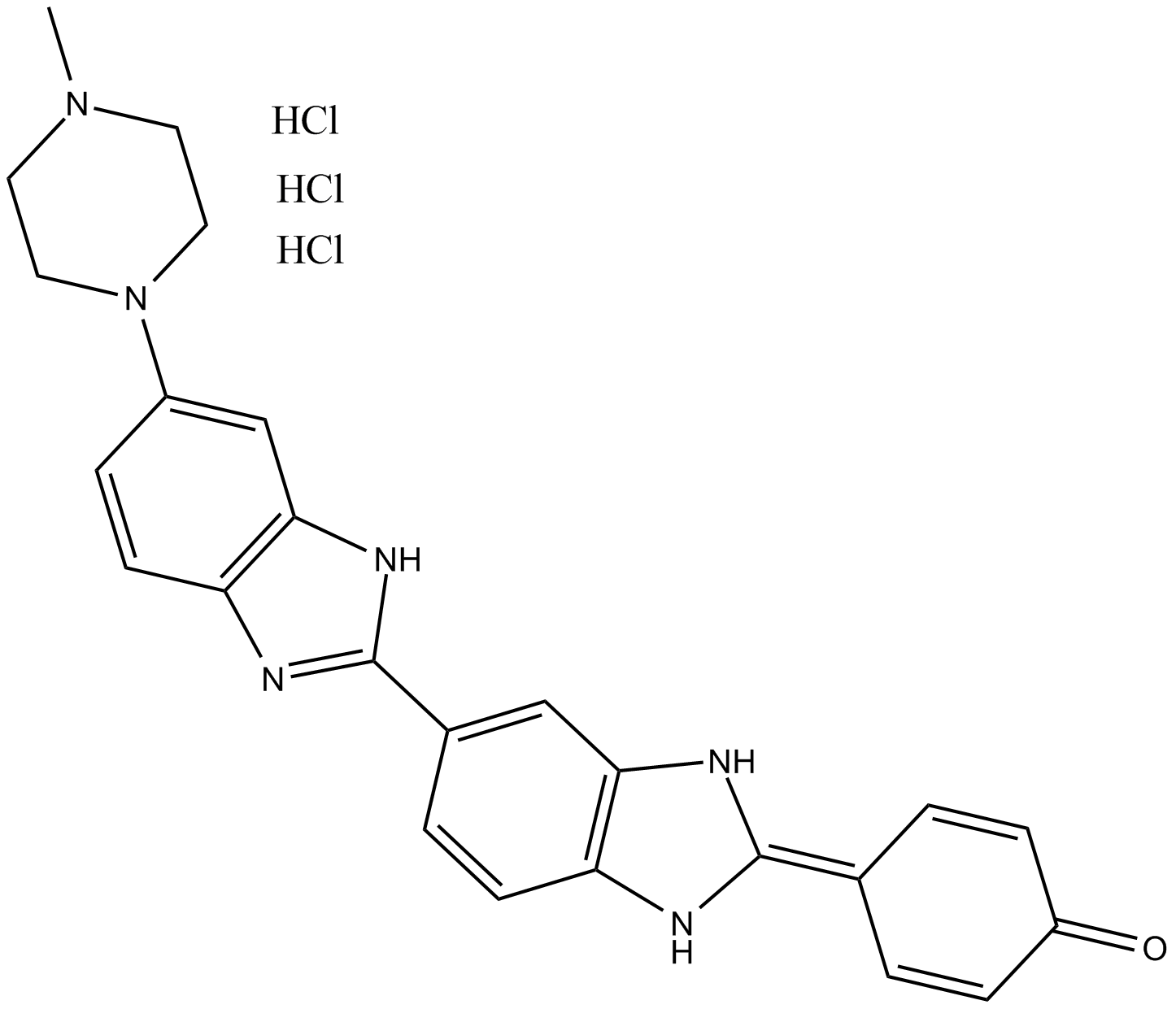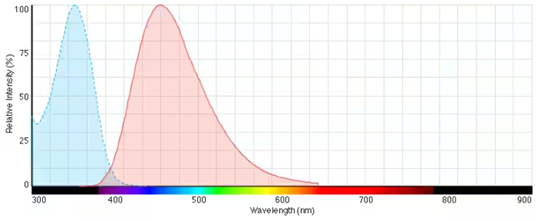Hoechst 33258 trihydrochloride (Synonyms: Bisbenzimide, HOE 33258, NSC 322921, Pibenzimol) |
| カタログ番号GC12187 |
ヌクレイン酸染色剤のHoechst 33258トリ塩酸塩(Ex/Em:352/461 nm)は、細胞膜を通過することができる核カウンターステインとして頻繁に使用され、dsDNAに結合すると青色蛍光を放出します。
Products are for research use only. Not for human use. We do not sell to patients.

Cas No.: 23491-45-4
Sample solution is provided at 25 µL, 10mM.
The nucleic acid stain Hoechst 33258 trihydrochloride (Ex/Em: 352/461 nm) is frequently utilized as a cell-permeable nuclear counterstain that emits a blue fluorescence upon binding to dsDNA. Hoechst 33258 trihydrochloride is commonly employed in various studies related to cell counting, cell cycle analysis, and cell replication. It is particularly useful in identifying condensed nuclei in apoptotic cells, as well as in combination with BrdU staining for cell-cycle studies. Hoechst 33258 works similarly to Hoechst 33342 but is less cell permeable.
Hoechst dyes are also useful for monitoring cell viability by tracking changes in their emission spectra. As minor groove-binding DNA stains with AT selectivity, the Hoechst dyes are able to bind to all nucleic acids, but they show a greater fluorescence enhancement for AT-rich double-stranded DNA strands compared to GC-rich strands [1]. This property has been exploited to identify Q-bands in chromosomes, which are regions rich in AT base pairs that fluoresce brightly when stained with the quinacrine dye [2].

Fig. Fluorescence excitation and emission spectra of Hoechst 33258 bound to DNA
References:
[1]. Portugal J, Waring MJ. Assignment of DNA binding sites for 4′, 6-diamidine-2-phenylindole and bisbenzimide (Hoechst 33258). A comparative footprinting study. Biochimica et Biophysica Acta (BBA)-Gene Structure and Expression. 1988 Feb 28;949(2):158-68.
[2]. Weisblum B, Haenssler E. Fluorometric properties of the bibenzimidazole derivative Hoechst 33258, a fluorescent probe specific for AT concentration in chromosomal DNA. Chromosoma. 1974 Sep;46(3):255-60.
Average Rating: 5 (Based on Reviews and 30 reference(s) in Google Scholar.)
GLPBIO products are for RESEARCH USE ONLY. Please make sure your review or question is research based.
Required fields are marked with *




